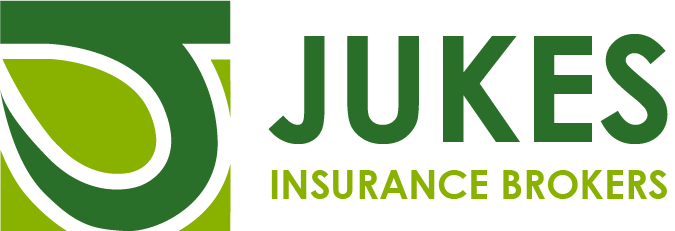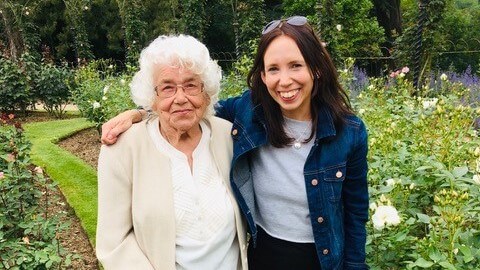In anticipation of International Women’s Day, we asked Sarah Alexander, Director, Executive Coach And Trainer of Vivid about her career and to share some tips for the next generation of women.
Vivid is a coaching and training practice that is all about enabling people to develop and grow, and fulfill their maximum potential. It offers tailored learning and development solutions for individuals and teams.
Sarah works with businesses, universities, schools, charities and individuals to provide one-to-one executive coaching, group training workshops and webinars, team away days and learning and development consultancy. The development programmes are always designed with your needs in mind.
How did you get to where you are today?
One of my first roles was as a manager of a team of over thirty laboratory analysts. It was during my time managing the team that I discovered a real fascination for developing people professionally and personally, and nurturing careers. After progressing to other roles within GlaxoSmithKline (GSK) in communications and marketing, I thrived on delivering training to sales reps – combining my love of communication and training. I went on to work in an international role, organising training events for healthcare professionals that reached over 20,000 doctors from more than 40 countries.
After having my first son (I now have four boys aged 11, 9, 6 and 2), I knew I wanted to work for myself to increase my flexibility, and I knew I wanted to focus on developing others. I qualified as an executive coach and established my own business, Vivid, delivering executive coaching and soft skills training to individuals and teams in businesses and universities. I have managed my own business for over 7 years and I have built a large portfolio of clients.
What attracted you to your sector?
When I was a graduate trainee I vividly recall one of the production line managers, Rod Lugg talking to me about the weekly boardroom meetings concerning the production lines. He didn’t talk to me about the numbers, the agenda, or the technical specifics of the meetings. Instead, he told me about the people, the politics, what the small changes in body language in certain key people meant, when to talk, and when to stay quiet. He opened my eyes to understanding how it is your relationships with people, and your own self-awareness in the workplace that help determine your success and your influence. I realised that business is all about people. I also read a book called Zapp which is about empowering others rather than being directive. I still remember the rules of the book today – listening, maintaining others’ self esteem, responding with empathy, and asking for help to solve problems. Those building blocks of motivating and developing others have stayed with me. I wanted to be able to lead a business that helped others reach their potential, build effective working relationships and feel fulfilled at work.
Who has been your female role model?
In business my female role model is Sally Storey. I was part of her team in the UK and in an international role whilst working at GSK. Sally inspired me because of her ability to understand people and get the best out of them. She could build a sense of team in a short space of time, driving team loyalty, motivation and camaraderie. I look up to her for her incredible people skills and confidence. I witnessed her forming a team, including me, for the Emerging Markets and Asia Pacific/Japan region consisting of people from many geographical locations. In a short space of time the team knew each other well, supported each other, and was aligned behind a common goal. One of Sally’s recent roles was Vice President and General Manager for GSK in the Gulf Cooperation Council countries – she was the first female leader of any pharmaceutical business in this part of the Middle East.
In my personal life I have to include my husband’s grandmother who is going to be 100 this year. She is an amazing female role model because of her tenacity and strength. After a challenging life, she was still gardening an allotment in her 90’s, and is still able to cook and host dinners for family members (of which she has many). For me though, it is her ability to be in the present moment, see the humorous side of life and do small things each day that keep her active and contended that I most look up to and hope to emulate.
How can we encourage young girls to dream bigger?
I believe that the stunting of girls’ dreams happens so early in their lives, that the earlier you can open girls’ minds to more options in their education and careers, the more powerful the interventions will be. I have read a survey that was carried out in the UK that found girls and boys receive different careers advice. The top professions recommended to girls are nursing, care, teaching and medical, where as for boys it’s IT, engineering and finance. Gender inequalities in career advice can stunt options, and shrink dreams. There isn’t one easy solution to encouraging girls to dream bigger, but a blend of changes could make a massive difference. I believe we should not be offering career ‘advice’, but coaching young people to uncover their dreams and nurture them. Promoting role models in industries where female representation is low could offer young girls a path they can visualise. And encouraging confidence and fearlessness in young girls are key characteristics that they can take into any industry.
What advice would you give to your younger self?
One thing that serves me well now is having key habits that help me day-to-day personally and professionally. As you are what you do, if you regularly do the things that you believe in and that move you in the right direction, then you will get to where you want to be. Small changes each day, small choices each day, all add up to move you along a different trajectory. I have recently enjoyed reading Atomic Habits by James Clear, and it provided new insight into the power of habits, and supported my thinking around having powerful habits.
I would advise my younger self to be aware of my values, and to form habits that were in line with them. I would also advise myself to be more fearless. My fearlessness has grown over time. I would have loved to have accelerated that growth earlier on in my career.
Do you have any tips or advice for the next generation of female leaders / females entering your sector?
My three key tips for females setting-up or leading training and development businesses are:
- Your own continuing professional development is crucial to being able to offer your clients powerful learning and development solutions. Reading, training, networking with other training professionals and staying up-to-date with current affairs are all vital in offering a service that stands out.
- Get out there, get networking. Don’t hide behind a screen, or on social media. Real business connections are formed face-to-face. Business growth happens when you meet people and get talking.
- Hunt out and nurture friendships with people who help give you your spark. Spending time with people who inspire you, make you laugh, make you think or make you challenge yourself is invaluable when starting and growing a business.






